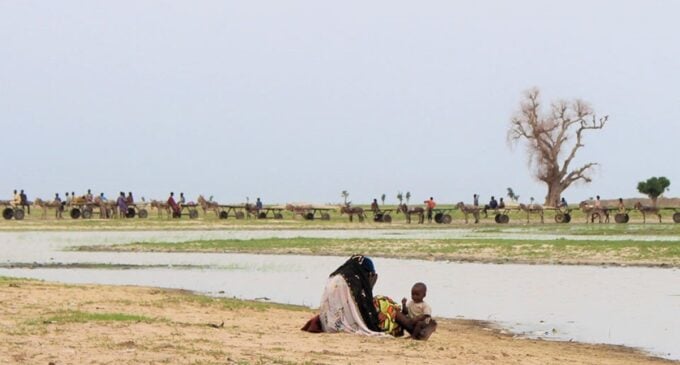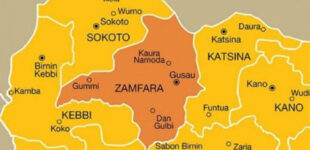Challenges of climate change, water systems degradation, food insecurity in Nigeria

BY TEMITOPE AGBOTOBA
Severe environmental degradation, natural hazards and climate change have forced the global community to recognise that a great relationship exists between humans, biodiversity and environmental health.
Nigeria is one of the world’s most densely populated countries with a population of over 200 million people, half of which are considered to be in abject poverty. According to the 2017 Climate Change Vulnerability Index, Nigeria is one of the ten most vulnerable countries to the impacts of a changing climate; the nation lacks structure, resilience and adaptation techniques to address the severe challenges of climate change on agricultural water management.
Climate, water resources, and biophysical and socioeconomic systems are interconnected in complex ways such that a change in any one of these induces a change in another. Nigeria, like any other developing country in Africa, suffers devastating impacts of climate change because of its geographical location, low technological and institutional capacity to adapt to a changing climate, as well as its great reliance on natural resources sectors such as water and forests. There is an urgent need to understand the dynamics of climate and make predictions to respond to climate variability and change.
Nigeria is richly endowed with both coastal and inland wetlands which account for three percent of its land surface cover. These wetlands perform some vital hydrological functions in the country and they are quite instrumental to flood protection. Importantly, they maintain stream flow during the dry season in the semi-arid region of Northern Nigeria and also help in regulating surface water quality and volume, as well as replenishing and sustaining groundwater.
Nevertheless, Nigeria’s wetlands are currently being endangered by human and bio-geophysical factors which include increased population pressure, rapid urbanization, mining, oil and industrial waste pollution, construction of large physical infrastructure, marine and coastal erosion, subsidence, and droughts.
Concurrently, climate change has been identified as a major threat to wetland ecosystems; which can affect wetlands directly and indirectly through rising temperature, changes in rainfall intensity and frequency, and extreme climatic events such as drought, flooding and the frequency of storms. This has caused adverse effects on livelihoods such as crop production, livestock production, fisheries, forestry and post-harvest activities in the country. Wetland degradation is affecting water supply and water resources management in various parts of Nigeria.
Water and food systems are highly vulnerable to continuously changing climatic patterns. Majority of the freshwater resources have already been depleted and there is a reduction in agricultural production in Nigeria with escalation in population and food demand. There is currently a flooding disaster in the nation, 2022 national reports claim over 600 lives have been lost and properties destroyed and completely submerged. The floods have damaged houses, farms, and basic infrastructure and decimated people’s livelihoods which have led to hunger and malnutrition.
Climate change is severely impacting water resources and agricultural yield in Nigeria, The overall water stress is continuously increasing and due to climate change, a sharp decline in precipitation is expected. Studies also predict a reduction in frequency and escalation in the intensity of rainfall, which will result in frequent droughts and floods. This has affected agriculture in the country due to unpredicted rainfall and rising temperatures. Food security depends on some factors such as the right governance frameworks, improved seeds and inputs, post-harvest handling, energy and policies. However, efficient food production depends heavily on water given that Nigeria majorly practices rain-fed agriculture.
The degradation of water systems in the agricultural sector has damaged health and nutrition and also reduced food production, constraining agricultural and economic development in Nigeria. To ensure food security, the conservation and protection of water resources are important because of the dependence of agriculture on these resources.
To end, there is a need for adequate water resource management, land-use planning and climate adaptation for wetland conservation and water security in Nigeria. Integrated water resources and environmental management should be adopted in order to ensure the proper functioning of wetland ecosystems and thus safeguarding the overall quality of the wetland ecosystem. Embracing watershed restoration will provide multiple benefits towards better livelihoods and a safer environment. There is also the need for an overarching policy framework to promote the conservation and management of water resources across Nigeria.
Temitope Agbotoba is a researcher and environmentalist. She’s keenly interested in implementing projects that promote sustainable development.














There are no comments at the moment, do you want to add one?
Write a comment